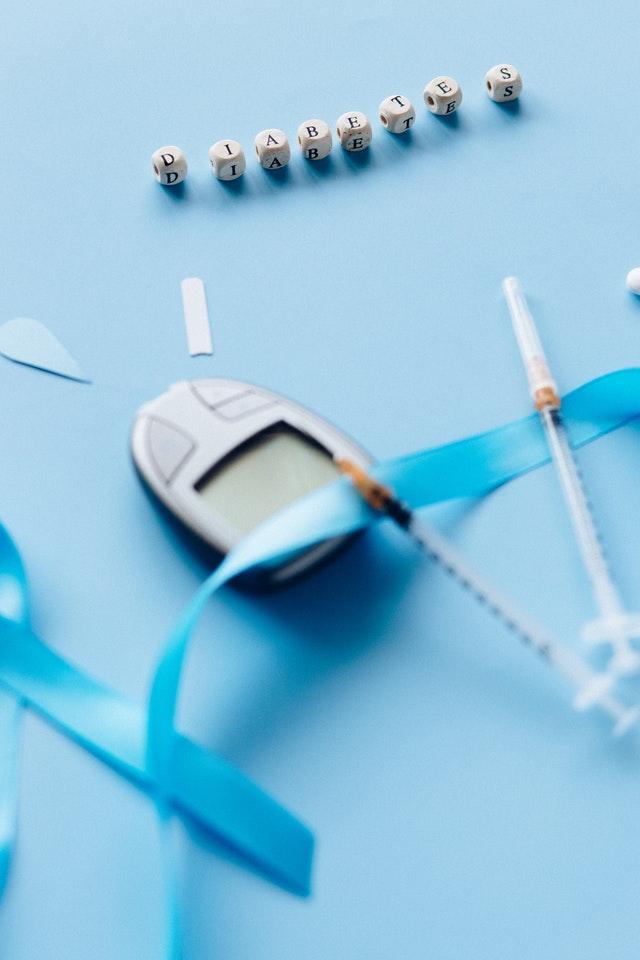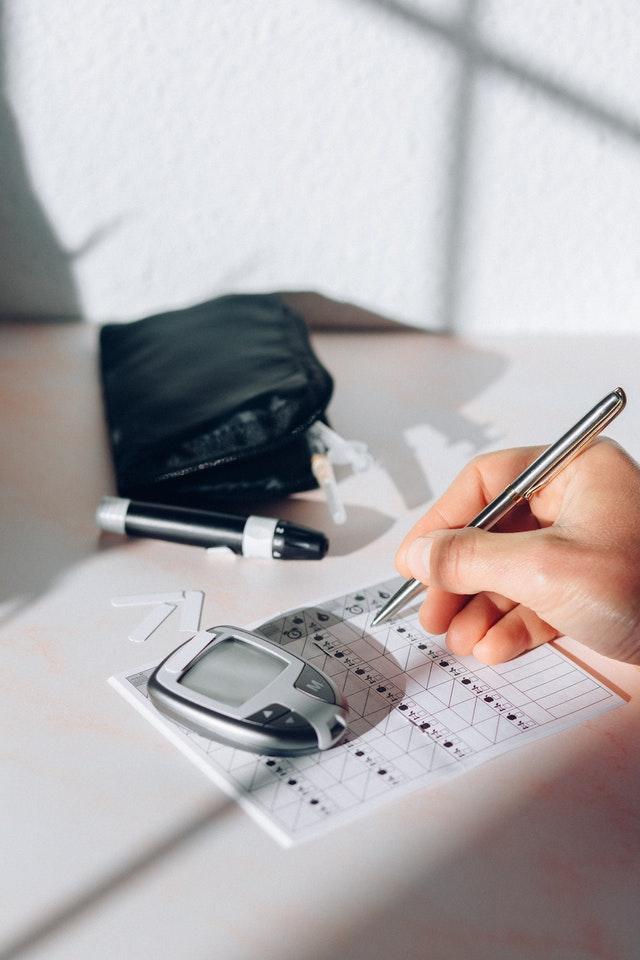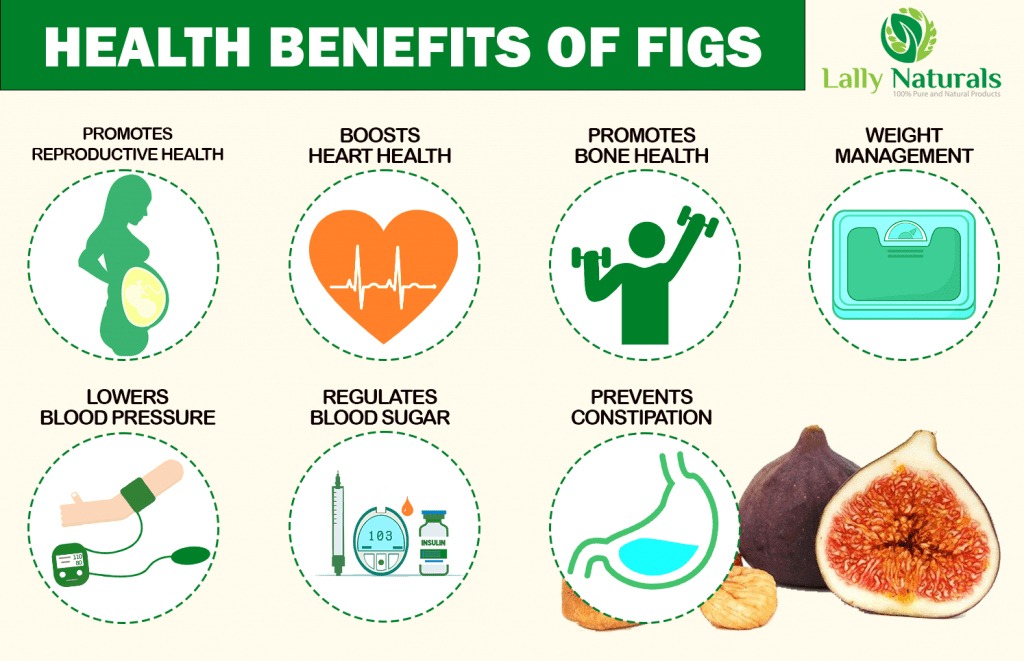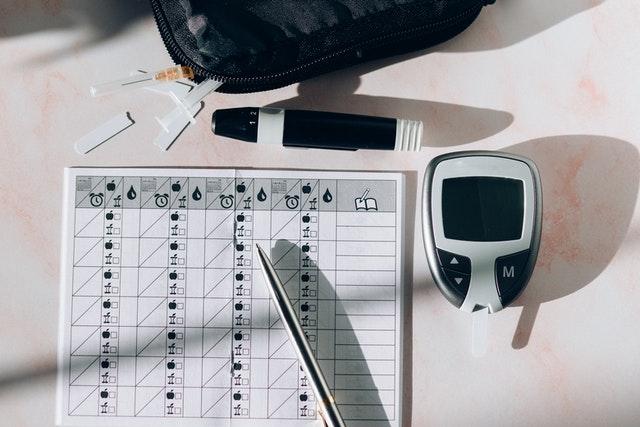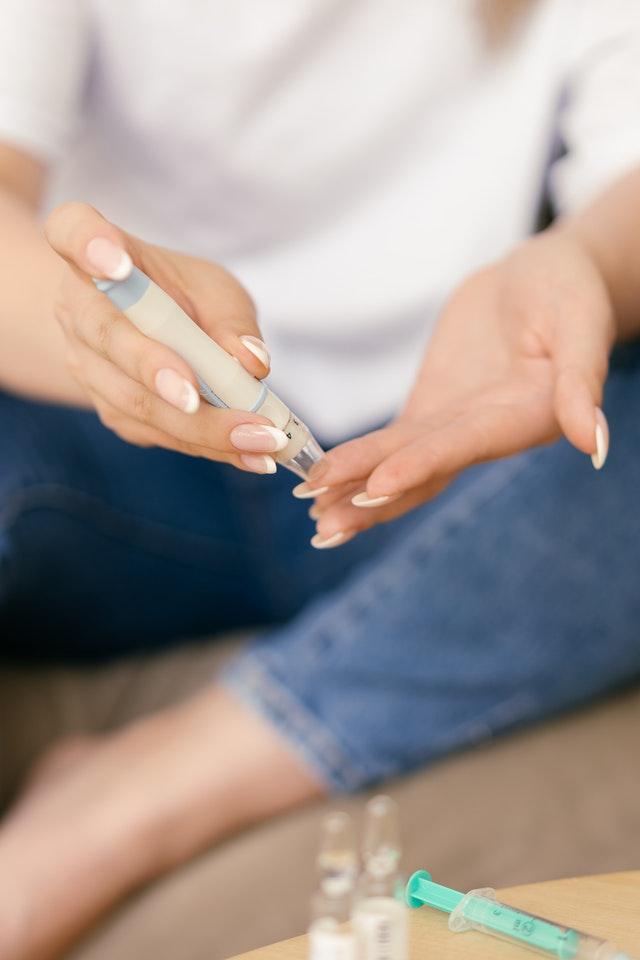Archive for July 2022

Blood Sugar Fasting
A blood sugar fasting test measures your blood sugar (glucose levels) when you haven’t eaten for at least 8 hours.
The glucose level in your body is always expressed in mg/dL. The present glucose amount in your blood does fluctuate day and night.
Generally, metabolism is essential in our day-to-day activities, and the level of blood glucose is maintained by our body for this activity. When you have a healthy body, your fasting blood sugar readings should be between 90 to 100 mg/dL.
However, your fasting blood sugar levels may fluctuate; at times, the readings may go high and low. The fluctuating fasting blood sugar readings in your body, even if you are healthy, may be caused by various factors.
Fluctuating blood glucose levels that you may experience are healthy condition signs that require or need attention.
Additionally, there are multiple Diabetes Reversal Methods and medical attention that you can use to keep your fasting blood sugar at healthy levels.
Why does Blood Glucose Level Rise in Diabetes?
After eating, your blood sugar levels are always high. This is due to the fact that the food you have eaten is being released into your bloodstream, and for this to happen, it must be converted to glucose.
As the food is converted to glucose, the glucose level signals your pancreas, which then releases insulin.
Your body needs insulin to help in the absorption of glucose. This will reduce your blood glucose levels and return to normal. The cell absorption process is essential in regulating or maintaining normal glucose levels.
However, if you have diabetes, your body becomes resistant to insulin, leading to insulin deficiency.
With you having insulin deficiency, your body loses the capability to absorb blood glucose. This will lead to you having diabetes due to high blood glucose levels.
There are various health condition issues that are associated with diabetes that you may have. Some of the problems you may have by being diabetic include thyroid, stress, muscle weight loss, acidity, low energy levels, insomnia, and many more.
Further, if your high blood glucose levels persist for long, it may cause damage to your nerves, kidneys, eyes, and even heart. Luckily, diabetes is reversible.
You will need to observe and maintain correct changes in your exercising, eating habits, sleeping patterns, and stress management.
It has been proven that over 10,000 diabetic patients have reversed their diabetes by following the right changes.
You must maintain good fasting blood sugar readings at some acceptable values if you have diabetes.
You can attain some of these typical accepted values by having and maintaining a healthy lifestyle which will help in reversing your diabetes.
Moreover, it is also important that you follow a sustainable diet plan which includes having staple food readily available in your kitchen. Supplements should be included in your diet.
Healthy Individual Normal Sugar Level (Fasting & After Food)
Blood sugar levels are also referred to as blood glucose levels. Your blood glucose levels may be normal, high, or low. Generally, the best time to measure your fasting blood sugar levels should be around 8 hours after eating.
When you are healthy and not diabetic, your normal fasting blood sugar range should be > 70 mg/dL. And your blood sugar readings should range between 90 to 100 mg/dL. two hours after eating if you do not have diabetes.
Factors that may cause your blood glucose levels to change during the day
Throughout the day, your blood glucose levels change.
There are multiple factors that may cause your blood glucose levels to change during the day, and they include:
- The variety of food we eat during the day. For example, your blood sugar levels might increase during the day if you eat rich-carb food and high-calorie food.
- The quantity of food. Your normal blood sugar readings may increase if you eat too much during the day.
- Physical activities. Your blood glucose levels are likely to increase if you do less physical activity during the day, while heavy and rigorous work and physical activity during the day reduce your blood sugar levels.
- There are certain medicines that may have an impact on your blood glucose level during the day.
- Your normal blood sugar levels are likely to change if you have medical conditions such as hypoglycemia, diabetes, and liver disease.
- Your good fasting blood sugar level is likely to drop due to alcohol consumption.
- You are likely to suffer from Type 2 Diabetes if you are smoking.
- Age Matters! There are increased chances of you having diabetes as you age. This is because insulin tolerance in your body reduces as you grow old.
- Your normal blood sugar levels can increase due to mental and physical stress.
- You are likely to have low blood glucose levels during the day due to dehydration.
The good thing is that most of these listed factors that may cause your blood sugar levels to change during the day can be solved.
All you have to do is ensure you are in the correct surroundings with the right guidance. Additionally, suppose you want to reverse your diabetes.
In that case, you also need to be doing what other diabetic patients who are on a similar journey as you are doing in the right environment and guidance.
Children and Teens with Diabetes – Normal Blood Sugar Levels According to Age
There is variation in fasting blood sugar levels in children from the time they wake up to the time they have taken their meals. Therefore, it is essential that you monitor your children’s normal blood sugar levels regularly.
The normal blood glucose levels for children at the age of six should range from 80 to 200 mg/dL. A blood sugar test is a must if your child has complaints of hypoglycemia, especially in the middle of the night.
The blood glucose level reading of between 80 to 180 mg/dL. is considered healthy if your kids are aged between 6 to 12.
However, it has been found that normal blood sugar level reading increases after meals for kids around this age. Therefore, to ensure they have a healthy glucose level at bedtime, limiting their snack intake before sleep is essential.
Blood glucose level reading of between 70 mg/dL. to 150 mg/dL. is considered healthy for teenagers. One of the reasons for irregular blood glucose levels in teenagers could be heredity.
Mood swings, stress, and lifestyle issues are common among kids around this age. These are the critical challenges in managing healthy blood glucose levels in teenagers.
Despite managing blood sugar levels in teens being critical, it is possible. You can regulate blood sugar levels in teens by implanting good eating, sleeping habits, and other lifestyle modifications at the right age.
Introducing the right lifestyle modifications to teens at the right age will help them in their entire life. Besides, as teenage, motivation and a little push are essential in regulating sugar levels.
It is alarming, and your children will require medical attention if their blood sugar level readings are 180 mg/dL.
Random Blood Sugar Level Chart
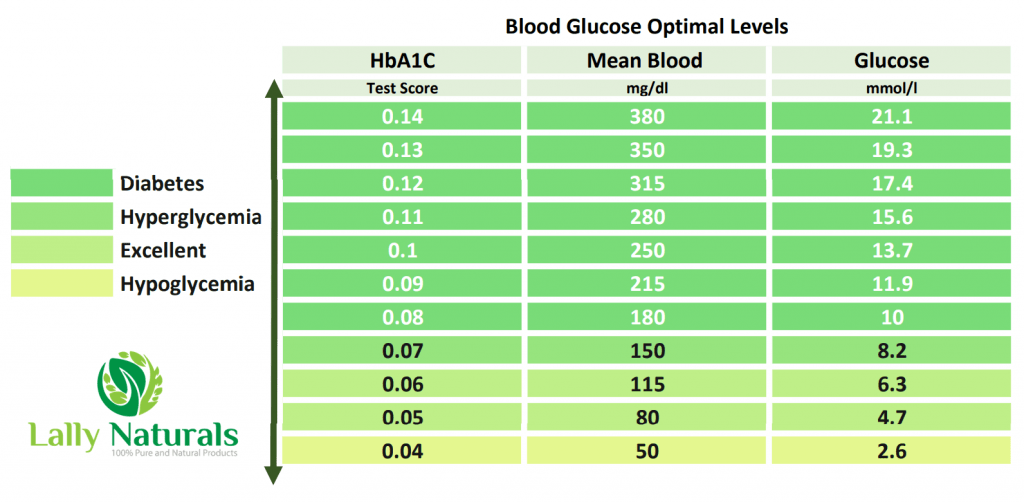
There are scheduled blood sugar testing durations during the day. However, you can still do random testing at any time of the day.
Random blood sugar testing should be done outside the regular testing timetable.
When you do random blood sugar testing, it will confirm diabetes if you do the random test during and after treatment of diabetes.
When the blood sugar level reading is 200 mg/dL or more, then it is an indication of diabetes mellitus.
Checking random blood sugar levels is the main aim of an RBS test. When the range is 200 mg/dL or greater during an RBS, it clearly indicates diabetes.
Doing a random blood sugar test will help in the timely treatment of diabetes via monitoring during and after treatment. It is recommended that you do a random blood sugar test if you have the following symptoms:
- Unexpected weight loss
- Blurred vision
- Constant dehydration and dry mouth
- When your wounds take time to heal
- Urinating recurrently
Healthy Normal Sugar Levels in Diabetic Adults (Men or Women)
Your blood sugar level should range between 100 mg/dL to 180 mg/dL the entire day if you are a diabetic person above 20 years of age.
To avoid diabetic complications, your fasting blood sugar range should be between 70 mg/dL to 100 mg/dL.
Your blood sugar levels should be between 100 and 140 mg/dL at bedtime to avoid diabetic complications.
Normal blood sugar readings for women in the blood sugar levels chart should be between 100 to 140 mg/dL at bedtime. It is considered dangerous and requires medical attention if your blood sugar readings at bedtime are> 70 and 180 mg/dL.
When your body has insulin deficiency or cannot use the insulin properly, then hyperglycemia occurs.
Some of the common signs of high blood sugar levels include:
- You experience fatigue
- Abnormal thirst
- Urinating frequently
- Difficulty concentrating and headache
- Cloudy vision
- Unexpected weight loss
Hyperglycemia can lead to diabetic ketoacidosis if left untreated. Diabetic ketoacidosis is a life-threatening condition.
Besides, it can lead to you having heart-related complications, kidney issues, and liver complications.
Remedies for High Sugar Level
You should seek medical advice and take medicine if your blood sugar level is between 180 to 250 mg/dL.
You should also avoid sugary items and processed foods and cut off a fast-acting carb diet.
You should seek immediate medical attention if your blood sugar level is >250 mg/dL.
If your blood sugar level is > 250 mg/dL and you do not seek medical attention, it may lead to you having a coma and high ketones in your blood.
Therefore, you should take a ketones test and get insulin therapy once you find your blood sugar levels are >250 mg/dL.
You are advised to do the following if you experience high sugar levels on a regular basis:
- Maintain a low sugar food diet with a low glycemic index
- Avoid taking fruit juices and processed foods.
- Maintain a healthy lifestyle and do mild exercises.
- Consult medical experts for recommended insulin dosages
- Take medication in time.
- Regular monitoring of your glucose levels
Many diabetic persons cannot follow the changes they need to make in their diet or daily routine despite being aware of them for multiple reasons. The most common reason is a lack of motivation and proper knowledge.
FAQs:
1. What is a normal blood sugar level after fasting for 8 hours?
Suppose you do not have diabetes and have fasted for at least 8 hours. In that case, your fasting blood sugar level must be below 100 mg/dL to be considered normal if you are an adult.
2. Is fasting sugar of 110 mg/dL normal?
A fasting sugar level of under 100 mg/dL is considered normal. A person with prediabetes has a fasting blood sugar level between 100 and 125 mg/dL.
If your fasting sugar level is 126 mg/dL or above, you have diabetes. Prediabetes is fasting blood glucose levels between 110 mg/dL and 125 mg/dL.
Normal blood sugar levels are less than 110 mg/dL, and diabetes is defined as levels more than 126 mg/dL.
3. What is a good blood sugar level in the morning?
In the morning, before taking your breakfast, it is advisable that you keep your fasting blood sugar level readings in the range of 70 – 130 mg/dL.
Additionally, your blood glucose readings at other times must range between 70 – 180 mg/dL.
Bottom Line
Depending on your medical condition, your blood glucose levels can go high or low. Therefore, it is advisable to visit an endocrinologist and get professional advice about the fluctuations in your blood glucose levels and the reasons for them.
You should also monitor your blood glucose levels and keep them normal if you have diabetes. Doing this will help you avoid diabetic complications and lead a normal life.
The diabetes reversal method using diet, exercise, and lifestyle step by step is a great way of keeping your blood sugar levels healthy.

Are Figs Good for Diabetics
Are Figs Good for Diabetics? According to the USDA (United States Department of Agriculture), figs are not only loaded with fiber, but they can also be a great aid in helping to manage blood sugar levels.
It is also one of the best all-natural nutritious foods for diabetics. With that being said, here are some interesting facts about diabetes and figs.
Nutritional Value of 1 Fig
First off, when you do your research, you will find that the nutritional value of 1 fig (weight 8.4 grams) is as follows.
- Sodium: 1 mg
- Fat; 0.1g
- Sugars: 4g
- Fiber: 8g
- Carbohydrates: 5.4g
- Protein: 0.3g
- Calories: 21
Figs are also packed with a wide variety of essential vitamins and minerals including the following:
- Vitamin A, C, K and B
- Triterpenoids
- Alkaloids
- Potassium
- Zinc
- Copper
- Magnesium
- Iron
As you can see, figs are a healthy fiber-rich fruit so it is an excellent choice for helping reduce blood sugar levels. This fact is also true for fig leaf extracts since it can be used in improving the body’s insulin sensitivity.
Good Choice for the Entire Family
Keeping your family healthy and free from diseases like diabetes is a huge challenge in today’s current society.
Therefore, it is important to understand how the family should eat, particularly when it comes to what foods raise blood glucose and those that do not. And, as far as eating fruits like the fig, you may want to add this fruit to the breakfast menu in your home.
How Do Figs Reduce Blood Sugar levels?
The question is, how do figs reduce your blood sugar?

Based on information published by healthshots.com, there is a science behind how this fruit is absorbed into the body. Because of the fiber, potassium, and chlorogenic acid that is present in this fruit, it actually reduces the blood sugar level instead of causing a spike in insulin.
Of course, it is important, however, that you always eat this fruit in moderation to keep from going overboard. For instance, if you eat too many figs, it may cause a spike in your insulin.
How Many Figs Can You Eat in a Day?
So, how many figs can you eat in a day?
One of the main keys to adding any fruit comfortably to your diet is to know exactly how many you can actually eat. This is because the nutritional value and sugar content usually vary from one fruit to the next.
As such, when it comes to eating diabetes figs, it is one of the top picks or best fruits for diabetics on the list (i.e. low to moderate on the glycemic index).
This is only true when you are eating a moderate amount. Therefore, based on its sugar content and other related factors, you should only eat 2 to 3 figs a day.
If you eat more than this amount, figs may cause several serious health problems including gaining weight, digestive issues, and high peaks in blood glucose.
Are figs Gluten Free?
Yes, figs are a gluten-free fruit. In fact, virtually all fruits are considered to be gluten-free.
Can People with Diabetes Eat Dried Figs?
Today, there is a huge amount of information posted online about diseases like diabetes. Some of which, of course, address what foods diabetics can eat and what food should be avoided.
In some cases, this information may contain myths about figs that may be passed on to others. For instance, in the diabetic community, most people think that dried figs cannot be eaten, even though it is simply not true. You can enjoy eating dried fresh figs and dried figs, too.

So, if you want to add California Dried figs as a part of your daily diet, you absolutely can.
Typically, one of the main issues that many people are concerned about is the high sugar content in the foods that they eat. Yet, this is not the only factor that should be considered, especially when you are making smart food choices for diabetics.
With this in mind, here are 3 of the most essential nutrients for controlling and managing your blood sugar levels properly.
- Protein
- Fat
- Fiber
Each of these nutrients is key to ensuring the body digests food longer. As compared to eating sugary foods alone, there is no quick spike in your insulin. Simply put, every time that you eat, you need a well-rounded meal that consists of fat, fiber, and/or protein.
Dried Figs Contain Fiber and Natural Sugar
Depending on the type of dried figs that you are planning to eat, there is at least 19 to 26 grams of sugar content. It is also important to note that dried figs do not contain refined or added sugar. And, even though sugar is sugar, figs are packed with essential nutrients that are good for your health.
So, if you want to eat figs (sugar) and yogurt (protein) together as a snack, you can. Actually, this combination can be a delicious addition to your breakfast. Or, if you choose to do so, you can eat yogurt and figs as a balanced sugar-friendly snack.
3 Ways to Eat Dried Figs to Manage Your Blood Sugar
1. Walnuts and Dried Figs
This is a great safe way for people who want to properly manage their blood sugar levels. Based on research studies, nuts combined with dried fruit are not only good for diabetics but also for preventing type 2 diabetes.
2. Plain Greek Yogurt and Dried Figs
As referenced above, plain Greek yogurt and dried figs can be the ideal mid-day snack for a boost of energy. Or, some people may eat plain yogurt with dried figs for breakfast.
3. Add Dried Figs to a Charcuterie Board
A charcuterie board with veggies, meats, cheeses, and dried figs is also a great way to share nutrient-dense snacks.
Summary
Figs are a good nutrient-dense source of food for diabetics. When eaten in moderation, it can also help you control your blood sugar levels. You can add figs to plain yogurt for breakfast. Or, you may eat this combination as a late-night snack. Either way, you can eat these treats without spiking your insulin.
Also, before you add figs to your diet, it is important that you consult with your physician. Your physician can help you to make smart choices, specifically when it comes to monitoring blood sugar levels and healthy eating.

Ways to Reduce Blood Sugar
According to a National Diabetes Statistics Report in 2020, an estimated 34.2 million people in the U.S. have been diagnosed with diabetes. The prevalence of diabetes is also constantly rising in both low-income and middle-income populations. Even though this rise in number is actually frightening to think about, there are many different things that people can do to combat this disease. One of the most important is to make specific types of lifestyle changes. And here is why.
Diabetes and prediabetes are caused by complications of high blood sugar levels over time. Actually, when blood sugar (blood glucose) levels remain high for a certain amount of time, it can lead to dangerous consequences including the loss of life.
Therefore, it is important that everyone understands how high blood sugar levels affect the body and the health risks involved in failing to treat this condition properly.
So, let’s get started by discussing the signs and symptoms and other related information that can help to reduce blood sugar levels fast.
Signs and Symptoms of High Blood Sugar
Unlike high blood pressure levels, high blood sugar is not a silent killer. In fact, in all actuality, there are many signs and symptoms that indicate that your blood sugar (glucose levels) are high. Here’s what to look out for.
- Thirst increases due to higher amounts of sugar in the blood
- Extra water in the body from this thirst will also increase the need to urinate frequently
- Eye vision is blurry
- Even though the hunger increases, the person begins to lose significant amounts of weight
- Increase in fatigue and tiredness (sugar in the body does not convert to energy but remains stored inside the blood)
- Increase infections and the wounds are slow to heal
- Feeling of numbness in the feet and other parts of the body
- Chronic gastrointestinal problems and heart disease
- Kidney damage
All of these symptoms and more usually indicate that the sugar levels in the body are too high and treatment is needed. To get ahead of these problems, it is important that you are aware of your own health status. For instance, your blood glucose can be tested regularly in your home.
Or, you may want to visit your physician to follow up on the signs and symptoms caused by these issues.
When visiting a physician, they may order one of the following tests to check for prediabetes or diabetes.
- A1C – fasting blood glucose
- OGTT – Oral glucose tolerance test
How Can You Reduce Your Blood Sugar Levels Fast

Once the testing for your blood glucose has been tested at home or at your physician’s office, you may need to take action right away. Based on your set of circumstances, there are a number of different things that you may be required to do.
- Under Medical Care of a Doctor
If you are already under the care of a medical physician, it is important that you follow the instructions closely that were given to you. For instance, you need to make sure that you are taking your medication as prescribed without skipping doses.
Since the approach that your physician uses may be different from other patients, you need to know exactly what to do in certain situations. Typically, whenever a diabetic patient skips a dose of their medications, the doctor may instruct them to take that dose right away.
Whatever the situation, it is important that you ask these questions in advance before you live their office.
- Drink Water
In some situations, lowering your blood glucose levels may be as simple as drinking water. This is because water helps to dilute the sugar in the blood. You should also avoid drinking sugary and low calorie beverages, especially since these beverages can increase glucose levels in the blood.
- Exercise
Though there are many effective ways to lower your blood sugar, some are much more effective than others. For example, if you want to reduce your blood glucose levels quickly, physical activity is extremely effective.
In fact, if you want to keep your blood glucose levels in check, you should go walking regularly. Or, you may choose to go to the gym. As a general rule, at least 15 minutes of cardio exercise can help to regulate these numbers. Also, before starting any strenuous exercise program, you need to consult with your physician.
- Eat Protein
Eating protein is ideal for helping to keep your blood sugar glucose levels down. Therefore, you may want to add protein to your diet as a snack (i.e. hard boiled eggs, almonds, cottage cheese, or low-fat cheese). Here are some of the primary benefits of making these dietary changes.
- Protein helps to reduce cravings
- Satisfying
- Eating more protein is also one of the best ways to lower blood sugar
- Digests in the body slower than sugary beverages and sweets
Ways to Reduce Blood Sugar in Pregnancy
Some women are at risk of suffering from a wide range of medical conditions when they are pregnant. One of the most notable and problematic is gestational diabetes. While not all women are at risk of developing gestational diabetes, there is a certain part of the population that is. Here is a profile of the women who are more at risk than others
- Women who are obese
- Specific races: Black, Asian, Hispanic or American Indian
- 25 years or older when you are pregnant
Gestational diabetes can also lead to a variety of different complications, including affecting the baby’s health (i.e. born with low blood sugar). Therefore, it is important for women to exercise regularly and eat the right nutritious foods to protect the baby and their own health.
According to information published by AACE, when pregnant women are diagnosed with gestational diabetes, specific goals must be established to protect their health. Under the guidance of the ADA , here are some of the key recommendations that should be followed.
- Upon getting up in the morning, the fasting level should be in the range of 60 to 90 mg/dl
- Prior to eating a meal, the range should be 60 to 90 mg/dl.
- After eating a meal ( i.e.1 hour), the ranges should be between 100 to 120 mg/dl
To control blood sugar levels in women with gestational diabetes, the same approach is used in the management of type 2 diabetes. The physician will also prescribe the following to these patients.
- Eliminate sweets and processed foods from the diet.
- Select healthy food choices like fruit, vegetables, and whole grains. Women with gestational diabetes must also practice portion control since these foods will also increase blood sugar glucose levels.
- Whenever physician feels that it is safe for their patients, they should also recommend a certain amount of physical activities like walking and swimming.
Based on the doctor’s prescribed treatment, the patient should take oral sugar medication or insulin injections.
Foods to Avoid When Your Blood Glucose is High
Eating the right types of food is an essential part of remaining healthy and active. Particularly, if you have been tested for insulin sensitivity and your blood sugar is high. In fact, if you are experiencing problems in this area, here are foods that you need to avoid.
1. Sugary Snacks for Treats
- You should always pay close attention to the snacks that you eat. This is especially true if you are thinking about eating any of the snacks in the following list.
- Ice cream and cookies
- cakes, pies, and muffins,
- sweetened yogurt sweetened
- Doughnuts
- Onion Rings
2. Beverages with sugar
- Drinking beverages with sugar can also lead to high levels of glucose in the blood. Therefore, it is normally time to avoid drinking these beverages with sugar.
- Energy drinks and sports drinks
- Coffee and Tea with sugar
- Soft drinks with sugar
- Fruit Juices
3. Foods with White Flour
Do not eat foods that have been made with white flour-based products. Some of the more commonly known foods that you should avoid include the following:
- Rolls and English muffins
- White Bread
- Pretzels and crackers
4. High Carb Grains
Refined grains are high in carbohydrates, which are foods that spike your insulin and increase your blood glucose levels. Therefore, you need to make sure to avoid eating.
- Rice
- Pasta
- Refined breakfast cereals
- White boiled potatoes
5. Fried Foods
To keep control of your blood glucose level properly, it is also best to eliminate fried foods. Instead, it is normally best to bake and broil your foods. For instance, here are some foods that need to be baked and broiled instead of fried.
- Chicken
- Fish
- Potatoes
6. Processed Meats
As with many other healthy diets, processed meat is also off-limits and should be avoided at all costs. This is because some processed meats will often contain higher amounts of fats, preservatives, and salt.
- Pepperoni
- Sausage
- Salami
- Ham
- Luncheon Meats
- Hot dogs
Foods You Can Eat on Your Diet
Even though it may appear to be a lot of foods that you cannot eat, there are some foods that can help to regulate your blood glucose level properly.
You need to know, however, how to mix and match them with your meals. For instance, you should avoid eating refined carbs (i.e. sugars and starches) only as a meal. Instead, you may want to eat refined carbs with one of the following dishes.
- Veggies and whole grains
- Healthy fats like nuts and peanuts
- Lean proteins such as chicken, fish, egg whites, and tofu
Ways to Lower High Blood Sugar Quickly
First off, you need to know that there is no food that can lower your high blood sugar levels instantaneously. This is primarily because it normally takes about 10 to 20 minutes for your food to be fully digested and released into your bloodstream.
On the other hand, if you are looking for foods that will have a quick effect on lowering your blood glucose levels, you may want to incorporate the following foods into your diet regimen.
- Peanuts and other low-carb nuts
- Tuna and Salmon
- Avocado
- Hard-boiled eggs
- Plain Greek Yogurt
- Unsweetened Chocolate
Exercise and Healthy Diet is Good for Lowering Blood Sugar Levels
Even though a physician may prescribe injections and other types of diabetic medications, this is not the only solution to lowering your blood sugar levels.
In fact, if you want to lower your blood sugar levels with all-natural solutions, you may want to consider the positive effects of eating healthy and exercising have on the body.
For instance, if you are looking to take this approach, here are some effective things that you can do.
- Exercise Regularly
Unfortunately, one of the worst things that people can do is lead a sedentary lifestyle.
Actually, to combat this problem, it is best to increase your activities. From taking a short walk to break up the sedentary time to signing up for dance classes, kickboxing, tennis, basketball, or golf, there are so many different activities that you can participate in.
To start, you may want to set a specific goal that you can commit to. Just adding 30 minutes of activities 3 or more times a week, can help you to manage your blood sugar levels properly.
- Eat a healthy Diet Regimen
As mentioned earlier, you need to make sure that you are eating a diet that excludes added sugars, refined carbs, and high-carb foods. By changing your diet, you can lower your blood sugar levels naturally. Here are some of the foods that you should incorporate into your regular diet regimen.
- Vegetables
- Cut portion sizes in half
- To control ingredients, eat less at restaurants
- Replace sugary beverages with water
- Bake, grill, and steam foods versus frying with lots of fat
- Eat lots of vegetables
- Reducing High Blood Sugar by Using Effective Home Remedies
Even though exercise and eating the right foods can help you to manage your blood sugar levels properly, there are other things that you can do to keep things under control. In fact, there are some home remedies that are very effective. Here are 5 of the most beneficial.
- Get adequate Sleep
Getting an adequate amount of sleep at night is essential to keeping your blood sugar levels under control. Just like poor food choices can raise glucose levels in the body, the lack of sleep can cause a variety of issues in the body, including hormonal changes and high blood sugar.
- Apple Cider Vinegar
You may be surprised to know that apple cider vinegar is also a good aid for reducing high blood sugar. Based on information published by the Journal of Diabetes Research, vinegar is great for increasing glucose uptake by muscles and elevating insulin sensitivity.
- Chromium
A deficiency in chromium can lead to unnecessary issues with high blood sugar. Therefore, it is important that you eat foods like spinach, oysters, and cheese broccoli since they are excellent sources of chromium. Also, if you choose to do so, you may want to add this supplement to your daily diet regimen.
- Stress
Most people know that bad stress has a devastating effect on the body. Just like not getting enough rest, stress can also raise your blood sugar level greatly. This is also why some people may perform deep breathing exercises to help eliminate the stress that they feel.
- Immunity
Another key to reducing blood sugar glucose is to strengthen the immune system. You can do this in a number of different ways including:
- Taking vitamin C supplements regularly
- Washing your hands frequently
- Eating foods like bell peppers, oranges, and leafy greens to get an adequate amount of Vitamin C
Monitor Your Blood Sugar Levels
Learning how to manage your blood sugar levels regularly is one of the best ways to prevent high blood sugar levels. As you keep track of the foods that you eat, you will also see how your body reacts. There are also diabetic apps available to assist you in making the appropriate behavioral changes.

Do Diabetes Medications Cause Weight Gain?
Diabetes Medications – In the USA alone, a little over 10% of all people have some form of diabetes. For those who don’t know enough about diabetes, the long and short of it is that this occurs when your body can’t produce enough insulin.
When the body is short on insulin the body’s blood glucose (blood sugar) can rise to levels that are unsafe for the body. Out of the many people who suffer from diabetes, there are quite a few who have Type 2 diabetes.
Despite the serious nature of diabetes, there are many ways to treat this condition. One thing that people with diabetes do need to understand is that their lifestyle needs to change.
But there are also medications and even a few remedies that do work when it comes to keeping one’s glucose levels stabilized. One of the main concerns for anyone however is finding the right treatment, since there are plenty of medications that can have serious side effects.
Some medications can affect a person’s weight, which is not intended but can be a negative side effect. Not all diabetes medications will affect a person’s weight, as the body chemistry of each person is different and needs to be taken into account. This article has been written to discuss the different medications used for diabetes and how they can affect those who need them.
Why do some diabetes medications cause weight gain?
The average diabetes medications tend to cause fluctuations in weight by affecting how sugar is processed and used within the body.
Typically, insulin will help the body turn sugars that are derived from food into energy that will help to fuel the body. Insulin makes it possible for sugar to break down in your body so that it can be utilized efficiently. This process can help to lower your blood sugar.
When there’s too much sugar in your blood, the insulin in your system sends a signal to the liver to convert the sugar into fat. Over time, this added fat can cause increased weight gain.
When people use insulin as a medication to balance out their system, it will act like natural insulin. This is necessary to help avoid the process of sugar being turned into fat continually.
The side effect of some medications is that they will signal your body to produce even more insulin, which can lead to weight gain. On the flip side, some medications will aid in getting rid of excess sugar in the body. Less sugar means less material to turn into fat. The result, in this case, is that weight loss could occur instead.
Is weight gain or weight loss more common with diabetes medication?
To be honest, neither gain nor loss is common with diabetes medications. There are several types of medications available, and sometimes it becomes a process to figure out what will work the best for each individual.
Every medication is designed to work a bit differently to lower blood sugar levels. The risk of weight gain or loss depends heavily on the medication and what it’s meant to do.
The unfortunate aspect of weight gain is that it can and does discourage some people from discontinuing their usage. When this happens, the risk of complications begins to rise. It’s important to keep your healthcare provider informed when taking any medication, as they can recommend something else if you experience any side effects.
How long do you need to take diabetes medication before weight changes can be noticed?
Changes can occur in the first few months. Some people taking diabetes medication have reported weight gain in the first 6 months. This side effect does vary from person to person and can depend heavily on the amount of exercise a person engages in, as well as their diet.
Which diabetes medications are known to cause weight gain?
Four groups of medication have been seen to cause weight gain. The feature that all of them share is that they affect the insulin levels in the body.
Insulin:
As one of the most common medications for diabetes, this works by stimulating the pancreas to produce a greater amount of insulin.
Sulfonylureas:
This type of medication also leads to weight gain as more sugars are turned into fat. The primary medications that are known to increase weight gain include: Amaryl, Glucotrol, and Glyburide
Thiazolidinediones:
These are another common group of medications that can affect weight gain. These medications tend to lower blood sugar by making the body more sensitive to insulin. Two FDA-approved substances are Actos and Avandia.
Meglitinides:
This group of medications also force the pancreas to produce more insulin. Weight gain on these medications has been noted as being up 7 lbs. in the first 3 months of usage. The two available forms of this medication are Starlix and Repaglinide.
Which diabetes medications cause weight loss?
Four medications can cause weight loss when taken. Much like those that cause weight gain, they work differently with each person that takes them.
GLP-1 agonists:
This is a group of medications that have been seeing a rise in popularity when it comes to helping diabetes and causing weight loss. On top of telling the pancreas to produce insulin, these medications can make a person feel full between meals.
Studies have shown that people using these medications have lost up to 13 lbs. There are several medications able to be used at this time, such as Trulicity, Byetta, Victoza, and Ozempic to name a few.
SGLT-2 Inhibitors:
Some people have noted weight loss after about 6 weeks while taking these medications, which include Invokana, Farxiga, and Jardiance to name a few.
Metformin:
The particular medication doesn’t always promote weight loss, but it does tend to make the body more sensitive to natural insulin. The results can take up to a year to notice if weight loss does occur.
Pramlintide:
This is a form of amylin that is made in a lab and is used to slow down food movement through the stomach. It can cause weight loss of anywhere from 4 to 7 lbs. depending on the individual.
Several medications have little to no effect on a person’s weight such as DPP-4, Nesina, Tradjenta, Onglyza, and Januvia to name a few. The trick with weight gain or loss when it comes to diabetes is how often a person exercises and what their diet is like.
The Bottom Line
Diabetes medications are needed for those whose bodies are having trouble producing insulin at normal levels. But some medications can cause weight gain or loss as a side effect. What it comes down to is how healthy of a lifestyle an individual has, since the different effects medications can cause will be determined in part by the habits of the person taking the medication.

Will a Low Carb Diet Improve Kidney Function?
Improve Kidney – Having healthy kidneys is important because they help regulate your body’s water, electrolyte, and acid-base balance which is essential for the health of all cells in your body.
Kidney diseases are preventable or manageable and treatment options are available, but you can help keep them at bay with a low carb diet. A low carb diet is one that restricts the amount of carbohydrates consumed.
The general recommendation is to reduce the amount of carbohydrates consumed by 20-50% and replace it with a healthy fat.
Low Carb Diet and Kidney Stones
Carbohydrates are a staple in most people’s diet and a common source of kidney stones.
A low carbohydrate diet has also been linked to improving kidney function. By restricting the amount of carbohydrates your body is ingesting, you are reducing the glucose load on your kidneys. This will, in turn, reduce the need for your kidneys to work harder. This will reduce overall stress on the kidneys and help them to function better and improve kidney function.
By eating excess carbohydrates, your body will produce more glucose which will in turn overwork your kidney. In the kidney, excess glucose gets utrafiltrated at the kidney tubules and then gets reabsorbed before leaving the kidney. This toxic waste along with minerals will form crystals that can eventually form kidney stones. By reducing your intake of carbohydrates, you are limiting the amount of glucose you produce and reducing the risk of stone formation.
Benefits of a Low Carbohydrate Diet
A low carbohydrate diet is designed to produce better metabolic health and weight loss. When your body does not have enough carbohydrates for energy, it will turn to fat for fuel. On the other hand, a low carbohydrate diet also controls blood sugars.
By controlling blood sugar, you are helping to prevent diabetes as well as kidney stones. The improved health and weight loss benefit are also seen in the heart and brain function.
How to Improve Kidney Function
You can improve kidney function by:
- 1. Drinking more water
Drinking more water will help to flush out the toxins in your body and your kidneys are no different. By encouraging healthy hydration, you are helping to improve the health of your kidneys. When you drink more water, your kidney tubules will get cleaned as you excrete the excess water.
If there were kidney stones or minerals trapped in your kidney tubules, this will be flushed out too. The daily water intake a healthy person need is at least 8 glasses of water per day. A person with kidney stones should drink more water as it helps to flush out the toxins in his or her body.
- 2. Avoid smoking
Smoking is also a risk factor for kidney stones. When you smoke, nicotine can bind with calcium and other minerals in the urine and increase your risk for kidney stones. If you quit smoking, you will notice an improvement in kidney function.
- 3. Decrease coffee consumption
Many people consider coffee to be a healthy beverage, but this is not the case if you are drinking too much coffee. The caffeine in coffee can stimulate the kidneys and increase your risk for kidney stones.
This is because your kidneys will have to work harder in order to get rid of the excess caffeine. Avoid drinking too much coffee and drink more water instead.
- 4. Eat more low-carb vegetables
Eating more low-carb vegetables is beneficial for your kidney function. Leafy green vegetables like spinach and kale are low carb vegetables.
Bacteria, yeast, and fungi will all thrive on carbohydrates, so you need to eliminate the toxins in the food that you eat. Vegetables are rich in antioxidants and vitamins which will help your kidneys to flush out the excess toxins.
- 5. Avoid or limit alcohol intake
Doctors suggest that people with kidney stones should limit or avoid alcohol intake. Alcohol also contributes to developing and worsening kidney issues by depleting the body of vital nutrients and vitamins which are needed to help prevent stone formation.
All the ethanol in alcohol has to pass through the kidney, which may end up reacting with the calcium in your urine to form calcium oxalate crystals. This will eventually lead to the formation of kidney stones.
- 6. Reduce protein intake
Eating more protein can also increase your risk for kidney stones. Excess proteins are excreted in form of urea, which is a powerful toxin. Urea may react with the calcium in your urine to form calcitriol and urate, a chemical that is linked to kidney stones.
- 7. Physical exercise
Physical exercise will also help the kidneys to function better. If you have kidney stones, physical exercise can reduce the workload on your kidneys and make them perform better.
For example, when you bicycling, you need to pedal hard with adrenaline for a long time which will make your kidneys work harder. This will help the kidneys to perform better and help the stones get flushed out. Physical exercises will also encourage sweating which will help to remove toxins from your body.
- 8. Manage diabetes, hypertension, and other heart diseases
Kidney stones can also form in people who have diabetes or other heart diseases, such as hypertension and low blood pressure. If you already have kidney stones, it is important to control any conditions that may cause your kidneys to work harder. Diabetes and kidney stones are closely linked as excess glucose may lead to the formation of kidney stones.
High blood pressure is known to destroy the fine kidney tubules and may affect kidney function. If you have high blood pressure and kidney stones, you should check your blood pressure regularly and keep it under control.
- 9. Limit salt intake
Limiting salt intake will also help to improve the health of your kidneys. Salt is rich in sodium and intake of extra salt may affect your blood pressure. Excess sodium may also lead to the formation of kidney stones.
Kidney stones are just one of the many side effects that come with an unhealthy diet and lifestyle. Eating a healthy diet is crucial for keeping your kidney health in check. Sugary and starchy foods that are rich in carbs should be avoided as they may be linked to the formation of kidney stones. Specialists also suggest that you should not intake excessive protein as it can also contribute to the formation of kidney stones.
